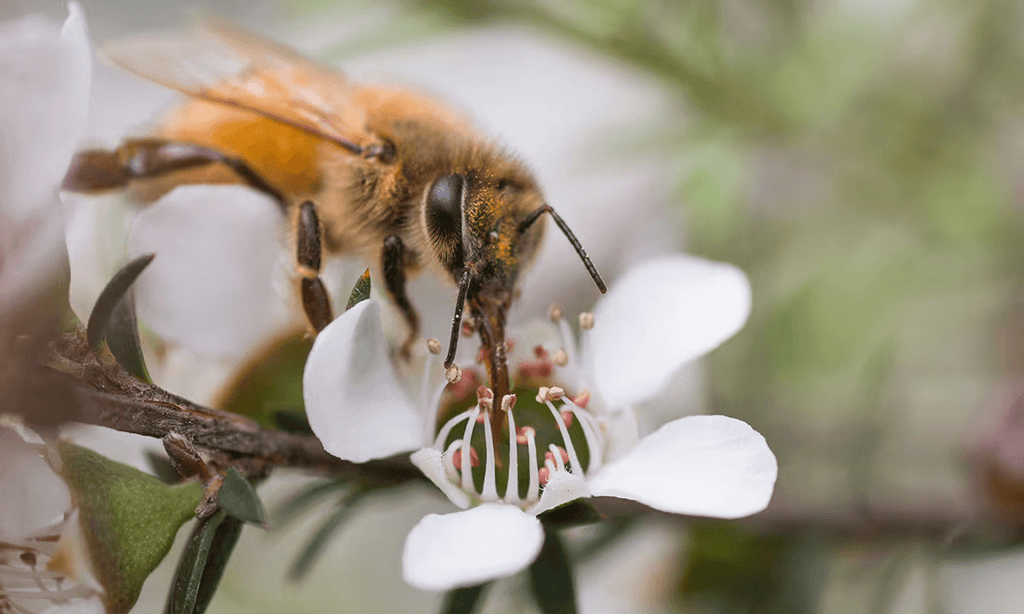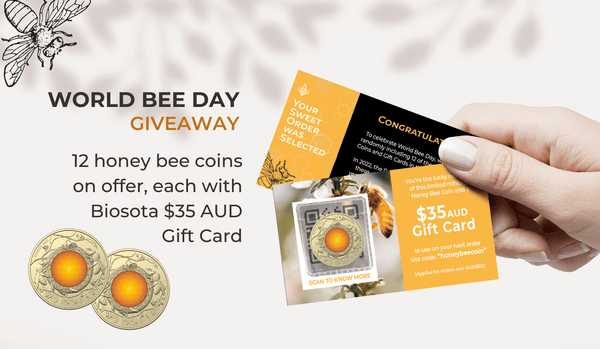World Bee Day: Honouring 200+ years of bees
As World Bee Day approaches on May 20, it’s the perfect time to explore the abundant history of our hardworking Australian bees. From their arrival to Australian shores, to their invaluable contribution to our agricultural sector, they truly are a remarkable species.
Honey bees hold the key to life as we know it, so let’s take a closer look at the pivotal role they play in sustaining our biodiversity and ecosystem.
The introduction of European honey bees to Australia
In 1822, the first recorded European honey bees arrived in Sydney Cove, Australia on the ship Isabella. Quickly adapting to Australia’s climate and flora, the bees built thriving colonies and began to flourish in a range of diverse locations across the country.
Fast forward to today, there are more than 1,500 species of native honeybees in Australia. However, it is the introduced species from Europe that is now responsible for producing the majority of Australian honey.

The crucial role of bees in food production
Our honey bees play an invaluable role in pollinating our agricultural and horticultural crops, both here in Australia and around the world. In fact, one third of the world's food production is dependent on bees.
Providing free pollination services across our nation, it is estimated that bees contribute a staggering $14.2 billion to the Australian economy each year.
In terms of honey production, there are approximately 20,000 registered beekeepers in Australia, operating more than 640,000 hives. Collectively, they produce 30,000 tonnes of honey each year.
This honey is consumed in nearly 40 countries across the globe, including Canada, China, Malaysia, Singapore, the United Kingdom, and of course, Australia.
How Biosota prioritises the wellbeing of our bees
Honey bees need a safe habitat to build their homes and forage for nutritious food sources. However, our bee populations are currently under threat, with entire bee colonies dying off at an alarming rate. This is mostly due to the use of pesticides and herbicides. If bees continue to decline, this will have a dire impact on our food production and humanity as a whole.
Here at Biosota, our top priority is ensuring our bees are happy, healthy and free to forage in a natural, chemical-free environment. In fact, our Manuka honey is one of the only certified organic Manuka honeys in the world.
Fully committed to sustainable and ethical beekeeping, our approach encompasses the following:
- We select pristine remote bee sites far away from highways, main roads and farms.
- Our antibiotic-free bees are free to forage in the wild, far removed from pesticide-sprayed crops, chemicals and pollutants.
- Our farms aren’t overstocked, ensuring our bees are happy and healthy. And the results speak for themselves - the most precious, rare and highest-grade Manuka honey in the world.
- Our honey is free from glyphosate and GMO. We extract it at a temperature which mirrors that of the beehive and do not heat or pasteurise it. This ensures our Manuka preserves its natural bioactivity.
- With family-owned hives, we are able to control the entire Manuka production process - from harvest to jar.
Celebrating World Bee Day with a Honey Bee Coin giveaway
In honour of World Bee Day 2024 and the small, yet mighty honey bee, we’re giving away 12 x limited mintage Honey Bee Coins, paired with a Biosota $35 Gift Card!

In 2022, the Royal Australian Mint released these collectors' coins to celebrate 200 years of the Australian honey bee industry. Featuring a striking design and colour, this coin will make a valuable addition to any collection.
To learn more about Biosota’s certified organic, high-potency Manuka honey that is produced by our amazing bees, browse our range here.
References
The Economic Value of Australian Non-Honey Bee Insect Pollinators in 2014 – 2015


